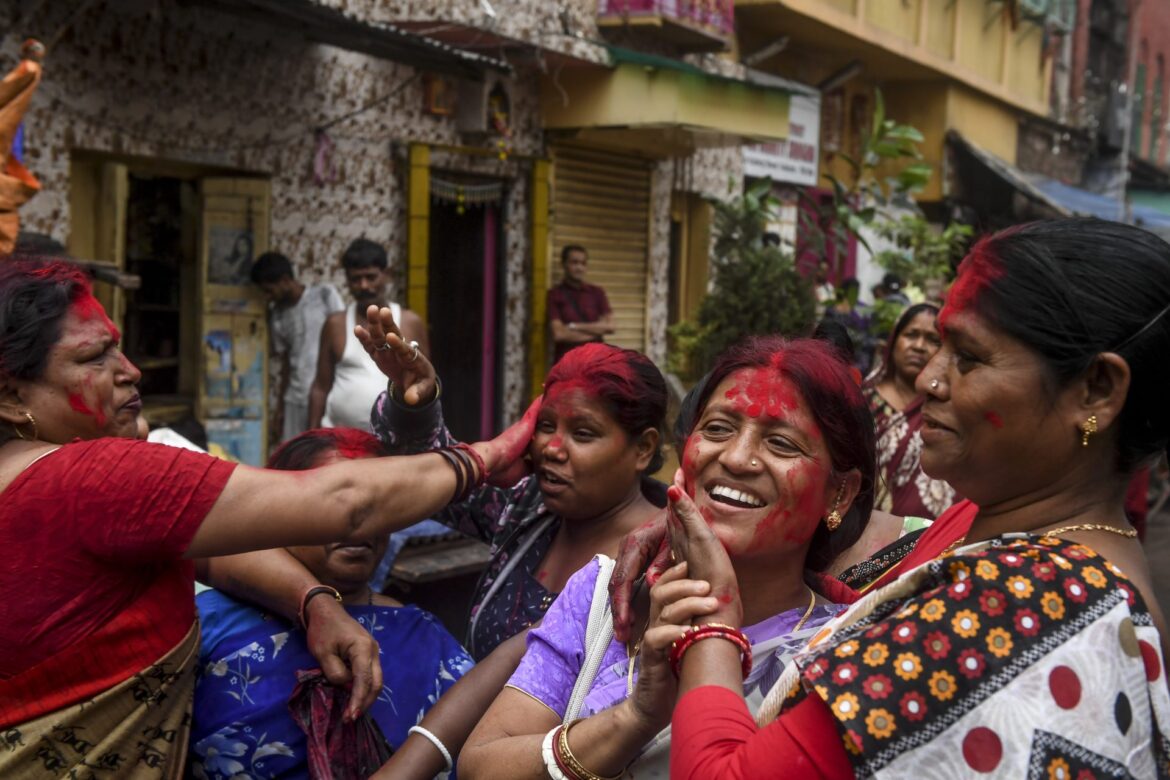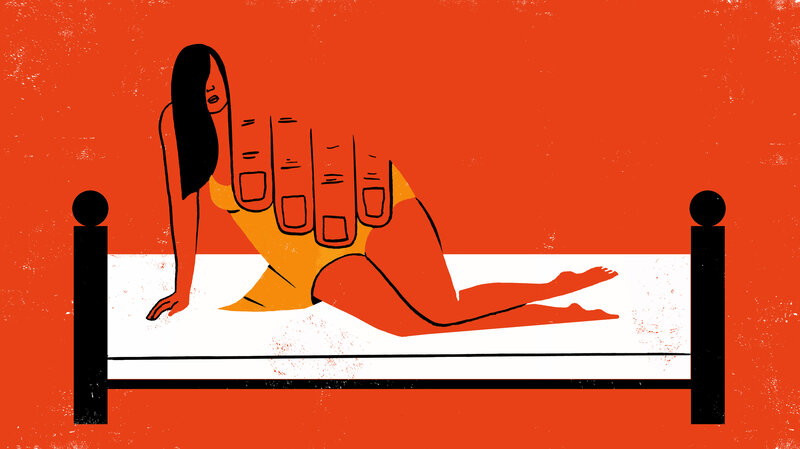By Srishti Sarraf
The Indian sex workers case is making the top headline these days. The recent order dated 19-05-2022 given in the case of Budhadev Karmaskar v. State of West Bengal And Ors., popular as the sex workers case the Hon’ble Apex Court has categorically recognized that the basic protection of human decency and dignity under Article 21 of the Constitution of India extends to sex workers and their children, who, bearing the brunt of social stigma attached to their work, are removed to the fringes of the society, deprived of their right to live with dignity and opportunities to provide the same to their children. Reliance has been placed on the earlier landmark judgments of the Court to emphasize & expound on the scope of the right to life under Article 21. Notably, this is not the first time when the Indian judiciary has held the dignity of the community of sex workers in its ruling. Two years back the Bombay High Court has held that “there is no provision under the law which makes prostitution per se a criminal offence or punishes a person because he indulges in prostitution.” A few years back the Delhi High Court also ruled that “simply because the victim worked as a sex worker before the incident in question doesn’t confer any right upon anyone to violate her dignity.”In a significant ruling, the Gujarat High Court has also observed that “Section 370 of the Indian Penal Code will have no application in a case wherein sex workers are engaged in prostitution of their own volition and not according to any inducement, force or coercion.” But the factor that is making the recent Budhadev Karmaskar v. State of West Bengal and Ors. Case super buzzing is the fact that this time the Court has issued significant binding guidelines to ensure that the community is being treated with dignity and not being abused. Further, to understand the depth of the case it is important to know about the history of the case along with some categorical development that has taken place in this case which is summarized right beneath.
BACKGROUND
This case was originally filed as an appeal before the Hon’ble Apex Court against the conviction order given by the Calcutta High Court in a case of the brutal murder of a sex worker living in a red light area in Calcutta in 1999. The factual matrix of the case highlights that the accused battered the head of the deceased again and again in a hideous and barbaric manner leading to putting a period on her breath, thus the Court naturally decided against the accused and the accused chose to file the criminal appeal before the Apex Court. Considering the heinous nature of the alleged crime the Hon’ble Apex Court straightforward dismissed the appeal however it later converted the case into a Public Interest Litigation suo motu by its order dated 14th February 2011 to address the problems of sex workers in the country. In its earlier orders the Bench consisting of Hon’ble Mr Markandey Katju, and Hon’ble Ma’am Gyan Sudha Misra, JJ. equivocally stated that their aim was “to create awareness in the public that sex workers are not bad girls, but they are in this profession due to poverty”. The Bench observed that: “Sex workers are also human beings and no one has a right to assault or murder them. Sex workers are also human beings and no one has a right to assault or murder them. A person becomes a prostitute not because she enjoys it but because of poverty. Society must have sympathy towards the sex workers and must not look down upon them. They are also entitled to a life of dignity given Article 21 of the Constitution.’
REMARK ON PREVIOUS SIGNIFICANT ORDERS
The Apex Court has passed several orders issuing directions to the Central Government and the State Governments in this case. In its very initial order dated February 2014 the Apex Court directed the Central and the State Governments to prepare schemes for rehabilitation all over the country for prostitutes through Social Welfare Boards along with preparing schemes for giving technical/vocational training to them considering their right to live with dignity under Article 21 of the Constitution of India.
Subsequently, by another order, the Court constituted a panel headed by Mr Pradip Ghosh, Senior Advocate as the Chairman to discuss various aspects of the problems relating to sex workers and submit its report. It also directed the States/Union Territories and the Union of India to carry out surveys to ascertain the number of sex workers who want rehabilitation and who would voluntarily continue in the same profession. The Apex Court categorically stated that “it is important to educate the public to present the situation of sex workers in the country in the correct light, as it is ultimately the people of the country, particularly the young people, who by their idealism and patriotism can solve the massive problems of sex workers.”
Thereafter the constituted panel identified three core areas for consideration including prevention of trafficking, rehabilitation of sex workers who wish to quit sex work and conditions conducive for sex workers to live with dignity under the provisions of Article 21 of the Constitution of India and submitted various reports time to time. The Panel subsequently gave many suggestions. The emphasise was given to the point that sex workers face great difficulty in getting ration cards, voter’s identity cards or opening bank accounts thus the authorities should see to it that sex workers do not face these difficulties as they are also citizens of India and have the same fundamental rights as others. The Court confirmed that the suggestions made by the Panel shall be seriously taken into consideration by the Central Government, the State Governments and other authorities and hence all efforts shall be made to implement these suggestions expeditiously. On 14.09.2016 a final report along with recommendations of the Committee was placed on record. Meanwhile, also by its various orders the Court emphasized the gravity of the matter and urged the Government to place the draft legislation before the Parliament at the earliest. In the wake of the Covid-19 outbreak that has caused severe disruption in normal life, it was realized that the class of sex workers fall under the list of vulnerable classes being adversely hit by the pandemic. Thus, the Court issued a direction for the supply of dry rescue so that the sex workers who are in dire straits can be rescued. Similarly, by order dated 10.01.2022, the Court had directed the State Governments/Union Territories to complete the process of issuance of ration cards/voter cards to all sex workers expeditiously.
PECULIARITY OF THE RECENT ORDER
By its very recent order, the Court has taken note of the periodical adjournments so taken by the Union of India in laying down a dedicated Bill. Thus, to fulfil the existing gap in the legal framework exercising its particular powers conferred under Article 142 of the Constitution of India the Court has passed six binding directions to be in force till the legislation finally comes up. Notably, the directions so issued relate only to the rehabilitation measures in respect of sex workers and other connected issues. These directions can be summed up as follows:
- Any sex worker who is a victim of sexual assault should be provided with all facilities available to a survivor of sexual assault, including immediate medical assistance and proper medico-legal care.
- The State Governments were directed to survey all ITPA Protective Homes so that cases of adult women, who are detained against their will, can be reviewed and processed for release in a time-bound manner.
- The police and other law enforcement agencies were directed to be sensitised towards the rights of sex workers and were directed to treat all sex workers with dignity and should not abuse them, both verbally and physically, subject them to violence or coerce them into any sexual activity.
- The Press Council of India was directed to issue appropriate guidelines to protect the identities of sex workers, during arrest, raid and rescue operations. Besides, the strict enforcement of newly introduced Section 354C, IPC which makes voyeurism a criminal offence, was directed to be extended against electronic media as well.
- Measures that sex workers employ for their health and safety such as the use of condoms, should neither be construed as offences nor seen as evidence of the commission of an offence.
- The Central Government and the State Governments, through National Legal Services Authority, State Legal Services Authority and District Legal Services Authority, are directed to carry out workshops for educating the sex workers about their rights vis-a-vis the legality of sex work, rights and obligations of the police and what is permitted/prohibited under the law. It was also directed that the sex workers can also be informed as to how they can get access to the judicial system to enforce their rights and prevent unnecessary harassment at the hands of traffickers or police.
Notably, it was directed to the State Governments/ UTs to act in strict compliance with the above recommendations made.
HAS THE APEX COURT RECOGNIZED SEX WORK AS A PROFESSION?
The Apex Court in its recent order has categorically held “that notwithstanding the profession, every individual in this country has a right to a dignified life under Article 21. The constitutional protection that is given to all individuals in this country shall be kept in mind by the authorities who have a duty under Immoral Traffic (Prevention) Act, 1956”. Now, the controversial question here is whether the use of the term “profession” here implies recognition of sex work as a profession. Notably, the term profession has been used time and again in the earlier order of the Apex Court as well. But this cannot be termed as recognition of sex work as a profession. In this regard, the Court has clarified in one of its orders stating that “this Court should not be perceived to advocate the recognition of sex trade or promote the cause of prostitution in any form and manner.” Reportedly, on this issue, Tripti Tandon, advocate for the Durbar Mahila Samanwaya Committee and Usha Cooperative, which are parties fighting for the rights of sex workers, stated that the order “does not recognise or have the effect of recognising sex work as a ‘profession’”. Here, it needs to be clarified that from one perspective recognition of prostitution as legitimate work reinforces women’s position as subordinate or sexual objects for men. Having said this, one also needs to be mindful of the fact that the judiciary of this Country in a plethora of judgements has affirmed the stand that voluntary sex is not illegal. Thus, no reason exists to regard prostitutes as criminals and maltreat them.
THE WAY AHEAD
Notably, the matter is yet pending before the Hon’ble Apex Court and is listed on 27.07.2022. The Court has strictly directed that the Union of India file its response to the recommendations made by the panel within six weeks. Let us hope that the Government come up with some positive response and the class of sex-worker get dedicated legislation for the protection of their life and dignity super soon. May the current discussion of the law eliminate the moral hypocrisy and class discrimination surrounding the class of sex workers.







